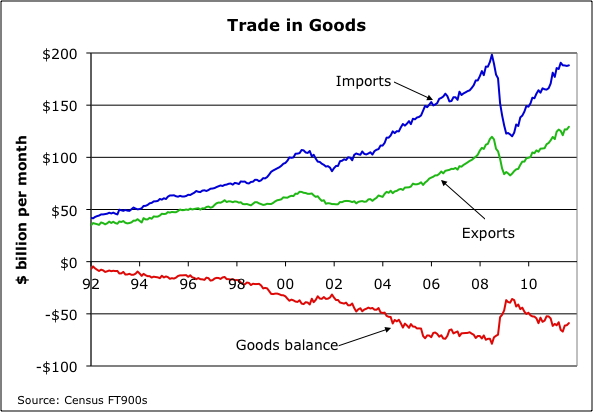(Image courtesy IPPR website)
Explaining what the third wave means it says,
"The world now stands at the start of a third wave of globalisation. As during the first and second waves, advances in technology and falling transport and communication costs will continue to make the world increasingly connected. It will be defined by different models of trade, continuing the trend of the last decade which has seen the rise of intra-company trade – effectively, the creation of cross-border supply chains – as an important mode of international trade. This drives home the need for advanced economies, like those in Europe, to focus on their strengths in high end technology and component goods across international chains of production. This third wave of globalisation holds out considerable economic opportunity but it will also be – indeed, it already is – the subject of intense criticism and anxiety, especially in the developed world."
Arguing for a more nuanced understanding of globalisation and its positives and negatives, the study elaborates on the pros and cons of the present trend of globalisation. What is relevant for me was the comment on the multilateral trading system.
About the role of the WTO it has this to say,
" In the absence of a multilateral trade liberalisation deal, the WTO should focus on how trade can be used to meet development objectives.This agenda includes tackling resource scarcity by encouraging water abundant countries to trade more water intensive goods, reducing tariffs on green technologies and services, promoting food security through a reduction in distortionary barriers and production subsidies for goods such as cereals, and examining which forms of aid for trade are most effective (te Velde 2011).
Trade reforms must also ensure a level playing field for all those competing in the global economy. This will mean intellectual property protection and enforcement provisions, open and non-discriminatory government procurement practices, and non-preferential treatment for state-owned enterprises (Ezell and Atkinson 2011) while allowing for proactive growth and industrial policies that foster structural transformation and help develop sustainable new capabilities (Rodrik 2011b).
...
With Doha stalled, small groups of interested and ambitious states should move forward within the WTO machinery with open plurilateral agreements in selected sectors, such as services, and with a clear understanding that any other state could join these agreements in future should they wish. Above all, the WTO should be preserved as the preeminent forum for global trade rules and negotiations on future trade liberalisation.
The WTO should increasingly focus on how trade can be a solution to development issues such as resource scarcity and food security. They should also provide more technical support to help the least developed countries and civil society organisations to participate in trade policymaking."
While this list is quite a wishlist which many would argue is difficult to achieve in the present impasse, the study itself argues for a "middlepath" in the globalisation path that countries are taking by taking advantage that increased global trade and competition have to offer with the right set of domestic, economic policies to minimise the impact of globalisation. This would require a lot more nuanced understanding of the impact of global trade, how to remain WTO compliant as well as how to further one's legitimate domestic interests. A tight rope walk?





